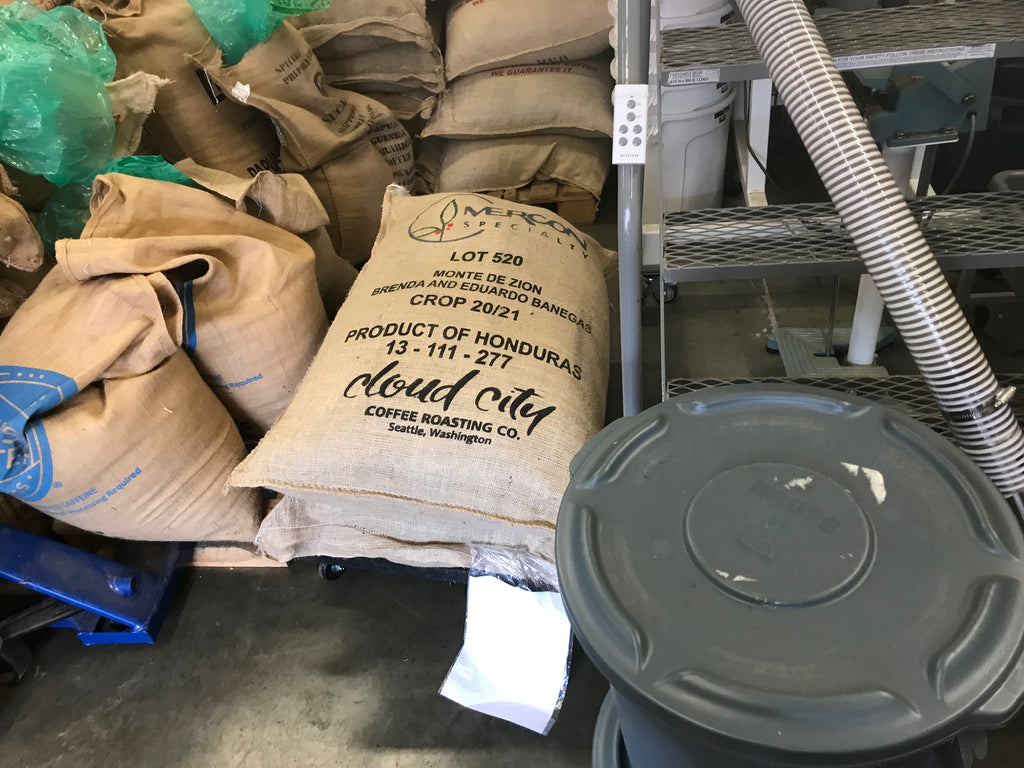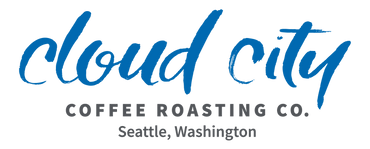Transparency Into Coffee Farming and Exporting – Brenda and Eduardo’s Story

From an innocuous Facebook invitation to a business relationship, this coffee story takes some interesting turns. It taught me quite a bit about what the farmer goes through to produce their coffee, and how many roadblocks exist to their success. I’m more convinced than ever that we need to pay more for coffee and provide more financial support to those operating alone in the higher altitudes of far-off places. They can’t do it alone and coffee is a commodity based on community, so why can’t we treat it as such throughout the entire life cycle?
I friended Brenda Leiva in 2018 on Facebook because she asked. By this point I saw Facebook as a way to stay in touch with coffee friends, so why not add more? We chatted on messenger, learned about each other’s families and lives, and eventually the topic of her coffee came up. She had never sold it out of Honduras, only having sold it for a pittance in country. Her husband Eduardo had worked hard to grow rust-resistant crops, tend them, process them, and store them to ensure the highest quality he could. This is a major feat to do on your own with no backing from a cooperative or an exporter or importer willing to make investments in your product. The thing about farmers is they want and need to sell their coffee for the highest price possible. At the time we met, coffee was sitting on the C market at around $1.00/lb green. Farmers lose money at this rate and have no incentive to continue farming.
Brenda snuck me some green, un-milled coffee in parchment via the mail. I manually milled it, but didn’t pull out any defects, as some I couldn’t see. After sample roasting it, it tasted earthy, nutty, but had good acidity. I knew there was something there, it just needed proper milling and I needed help in getting my hands on this coffee. I decided early on to buy part of her coffee and pay what I could. Eventually I purchased all of it as I was able to work it into my blends, but I get ahead of myself.
I started asking two importers here in Seattle, Mercon Specialty and Sucafina for help in importing this coffee. Due to various issues, I couldn’t get the attention of the right people at first to get the coffee milled and exported. I eventually gave up with Mercon and Sucafina arranged for the coffee to be milled and exported. It was milled at San Vicente to an industry standard of fewer than 5 secondary defects per 300g, plus grain pro (plastic liner inside the burlap for safe storage). This standard meant quite a bit of the coffee was culled, and the weight was less than expected for Brenda and Eduardo. However, this standard got us to the 80 grade we needed for it to be deemed “specialty.”
The coffee was finally delivered in October 2020, 7 months after I had tried to secure passage. The final price was $3.20/lb plus storage fees. I wish I could have put more money in Brenda and Eduardo’s hands, but it was our first year, and we had successfully gotten the coffee from Honduras to Seattle and into customer’s hands, so it still felt like a win.
As for the coffee itself, I was able to get chocolate notes, great acidity, and a nuttiness from it. In other words, it was a great blender and it served me well. I felt good about the coffee and the purchase, and I was grateful this coffee wasn’t sold for pennies on the open market.
2021 brought numerous rains and a hurricane (due to climate change) and lots of continued hardships In the form of Covid (strict quarantines and austerity from the Honduran government). Brenda and Eduardo did not have the money to pay for pickers, there was no central bank in Honduras, and the only option was a private bank offering 35% loan shark level interest rates. I wired them the money so they could get this crop picked and wet-milled (via anerobic fermentation). They ended up with a larger amount of natural because of the rains, and they lost quite a bit of the crop as well. Initially I told them the money was a loan, but I ended up gifting it to them. It made up a bit for the previous year when their income was less than expected and later than expected.
That year, 2021, I finally found the right people to talk to at Mercon, and arranged milling, shipment, and delivery much more easily. I made it clear that I wanted Brenda and Eduardo to clear $2.35/lb and there was an additional $.93/lb for milling, preparation, packaging, Grainpro bags, ocean freight, customs, inlands, and samples. Importers do so much and bear the risk of these transactions, so I am grateful to them for this assistance. Due to shipping issues worldwide, 28 bags (@ 69kg = 4,250 lbs.) of their coffee, called Monte de Zion, finally arrived in late October, 2021 (after potential arrival dates drifted from August, through September, and well into October).
The 2022 crop was already planted and growing at this point, and Brenda sent photos as she always did of the plants and the farm improvements. By this point it was clear I would be the only buyer of her coffee and that I would buy all of it every year. They were dependent on me, and I would not let them down.
In Spring 2022 Honduras received more rain than seasonally appropriate and once again Brenda and Eduardo had less coffee to offer. Honduras in general had less coffee overall and Mercon couldn’t accommodate our container storage needs. As of this writing we are talking to Sucafina again and I am requesting $2.50/lb. minimum to Eduardo and Brenda plus the exporter/milling/shipping fees. I purchase the coffee as I use it, so the importer is bearing the financial burden. As such I can’t offer huge rate increases for the farmer.
The entire process has been educational, and it is very clear that this entire model isn’t sustainable. Climate change is affecting the farmer’s way of life. Being dependent on the value of a commodity on the stock market is devaluing an important crop and disincentivizing future generations of farmers. Farmers and their families working alone in remote villages have no access to capital or education: they work in the proverbial vacuum, not knowing what they don’t know about exporting and quality improvement, or even what their coffee tastes like. As future crops fail and yield falls, I hope we can disconnect coffee from the stock market and pay minimum, life sustaining prices based on levels of quality, so that the farmer sells every bean on their farm and makes a living.





Leave a comment